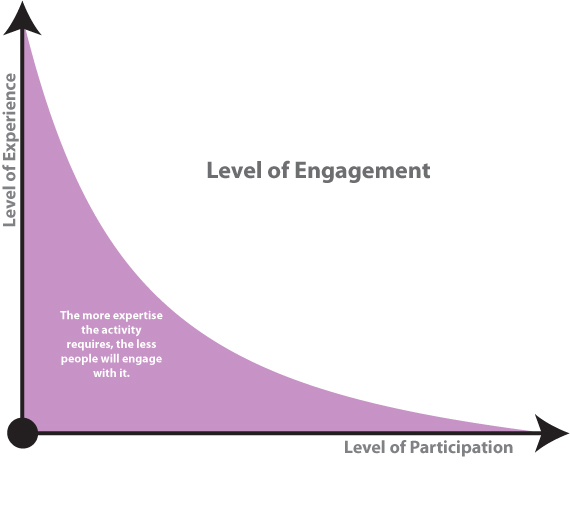Farrar, L. (2010). “Chinese companies ‘rent’ white foreigners.” CNN. Retrieved on 3 October, 2010: http://www.cnn.com/2010/BUSINESS/06/29/china.rent.white.people/index.html In China, white people can be rented. Chinese companies are willing to pay high prices for fair-faced foreigners to join them as fake employees or business partners. To have a few foreigners hanging around means a company has prestige, money and the increasingly crucial connections — real or not — to businesses abroad. The requirements for these jobs are simple: Be white. Do not speak any Chinese, or really speak at all, unless asked. Pretend like you just got off of an airplane yesterday. Those who go for such gigs tend to be unemployed actors or models, part-time English teachers or other expats looking to earn a few extra bucks. Often they are jobs at a second- or third-tier city, where the presence of pale-faced foreigners is needed to impress local officials, secure a contract or simply to fulfill a claim of being international. Occasionally, these jobs can go awry. A company can hire a white foreigner, swindle millions of yuan out of their clients , and after police shows up tell that the white guy was the one really in charge, White women are…
Tag Archive for social value
Conceptual Design, Contributor, Ethnographic & User Data
Intention over Outcome
by Mallika •
BBC Staff, (2010). “Morality is modified in the lab.” BBC Online. Visited on October 02, 2010: http://news.bbc.co.uk/2/hi/health/8593748.stm. This article highlights a study that proves that human moral judgment can be modified by disrupting a specific area of the brain by applying magnetic pulses. For example, most of us would agree that it is morally unacceptable for a man to let his girlfriend walk across a bridge he knew to be unsafe. If he did not know it was unsafe, and the girlfriend did not make it safely across the bridge, we would not hold the man responsible for letting her cross the bridge. After a magnetic pulse is applied to a certain area of our brains we would think differently—Whether or not the man knew it to be unsafe, we would think it was morally acceptable for the man to let his girlfriend cross the bridge if she made it safely across. If she didn’t, we would feel it was morally unacceptable, regardless of whether or not he knew it to be unsafe. This shows how the judgment can be influenced to become outcome based rather than intention based. On Concept: If the reverse were possible, that is morally questionable…
Contributor, Interface Design, Perception, Product Design Strategy
Re “A New Name for High-Fructose Corn Syrup”
by patrickgary •
Parker-Pope, T., (2010). “A New Name for High-Fructose Corn Syrup.” New York Times Online. Visited on October 3, 2010: http://well.blogs.nytimes.com/2010/09/14/a-new-name-for-high-fructose-corn-syrup/ As this article describes, corn syrup producers in the United States have begun to push for a re-naming of their products. While it may sound innocuous, this is in fact a major change in the way that High-Fructose Corn Syrup (HFCS) is marketed to the public. Due to a combination of structural factors such as the widespread success of processed foods, corn production subsidies, and the natural human inclination towards sweet foods, HCFS is present in an astonishing array of food products. Recently, however, there have been indications of a backlash against the prevalence of HFCS in the American diet. Some health professionals and consumer groups have even advocated for its removal from many processed foods. This recent trend in the public perception has left HFCS producers in a bind. They have an economic interest in continuing to produce HCFS at low cost and having it utilized in as many products as possible, but they are not able to change any fundamental features of their product. As a simple mixture of glucose and fructose refined from corn, there is nothing to add to or remove from HFCS to improve it in the public’s eyes. The main lobbying…
Background Knowledge, Conceptual Design, Contributor, Cultural Bias, Cultural Differences, Flow, Interaction Design, Interface Design, Product Design Strategy
Using Computers to Teach Children Without Teachers
by Sheetal Elangovan •
Johnathan, F . (2010). “Using computers to teach children with no teachers” BBC News. Retrieved on 21 July, 2010: http://www.bbc.co.uk/news/technology-10663353?print=true Summary of the article: The article summarizes studies conducted by Prof Mitra on the learning curve of children using computers for education with teachers. Results of the study prove that the teaching methods employed have been quite successful based on the fact that: Children who are not exposed to computers are highly motivated to teach themselves skills they want to learn Children have had a steep learning curve in picking up complex tasks with minimum supervision Learning by discussion and in groups ensures that content is retained and not skimmed through by children. Motivation levels of students are kept high with a grandmother figure in the picture. The best results of the study have been combined to create Self Learning Environments where children in groups of 4 share a computer to assimilate information. Virtually present volunteer grandmothers keep the student motivated and support the learning process. On Environment: The need for self-organized learning essentially arises in developing nations and the ones who do not have access to education. Children living in such conditions have a natural survival instinct, which keeps…
Conceptual Design, Contributor, Cultural Differences, Interaction Design, Interface Design
Antisocial Networking?
by Roman Shumikhin •
Stout, H. (2010). “Antisocial Networking?” New York Times Online. Retrieved on 3 October, 2010: http://www.nytimes.com/2010/05/02/fashion/02BEST.html The main topic of this article is that technology may be changing the very nature of kid’s friendships. Children used to actually talk to their friends. But now, even chatting on cellphones or via e-mail is becoming rare. Today’s teenagers and preteens, prefer to make friends and communicate using cellphone texts and instant messages, or through the very public forum of Facebook walls and MySpace bulletins. People now are more likely to use their cellphones to text friends than to call them. The article shows two opposite points of view on the topic. The author believes the quality of human interactions is becoming worse without the intimacy and emotional component of regular face-to-face communications (hence the title of this article). The ease of electronic communication may be making teens less interested in face-to-face communication with their friends, but close childhood friendships help kids build trust in people outside their families, develop empathy, understand emotional nuances and read social cues like facial expressions and body language, and consequently help lay the groundwork for healthy adult relationships. On the other hand, online social networking allows children to become…
Ethnographic & User Data, Featured, Interface Design, Pipsqueak Articles, Product Design Strategy
Emotional Design
by Olga Werby •

Product design is not just about usability. How we feel about a product makes a lot of difference. The research shows that two identical applications—with similar failure rate, but with a different take on dialogue box writing—result in very different perceptions of usability by its audience. The application with polite dialogue text always wins. Emotional design deals with how we feel about the product. Interfaces design is all about the look and feel and is responsible for a large portion of generated user emotions. Here are some examples of bag designs. If you want to encourage recycling, this is a great way of making these bags valuable—the users won’t throw them out after one use. Enjoy!
Background Knowledge, Background Knowledge Errors, Cognitive Blindness, Pipsqueak Articles, Product Design Strategy, ZPD
Science vs. Media: Degree of Public Involvement
by Olga Werby •

Recently, there has been an explosion of public discourse (fueled by the media) on whether we should do away with tenure in our institutions of higher learning. The basic argument boils down to “tenured teachers can do as they please due to job security and education suffers as the result.” Tenured professors, we are told, focus on research and publishing incomprehensible articles aimed at a few individuals in the world who could even understand them. What’s the use in that, people ask? My son/daughter/neighbor’s kid are being taught by a TA (with poor language skills) while we pay thousands of dollars for the privilege of these children attending universities with all those lazy good-for-nothing tenured professors! You might say that my summary of this world-view is extreme and simplifies the ideas to their comic representation. But that’s the point: the articles (and the readers’ comments they inspire) are written to get an emotional response. The issues of tenure, of the research that these tenured professors are engaged in and the articles they publish, and of teaching styles are complex. To evaluate the contribution of a scientist to his field, one needs to have a certain amount of expertise in that…
